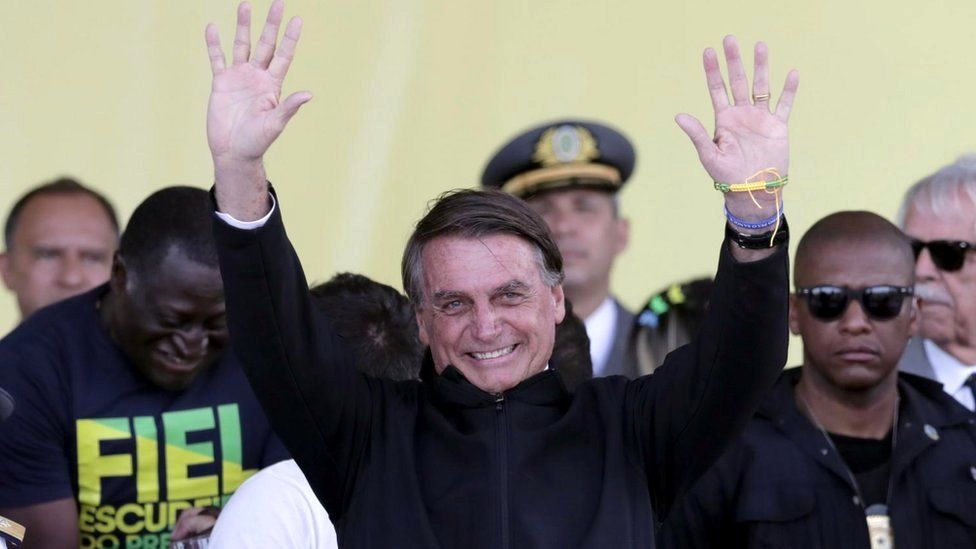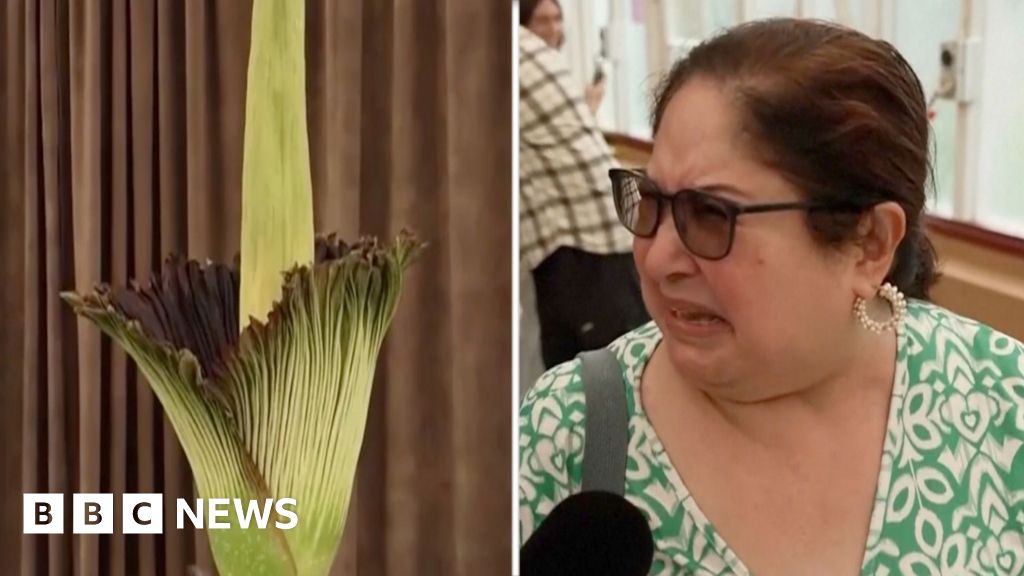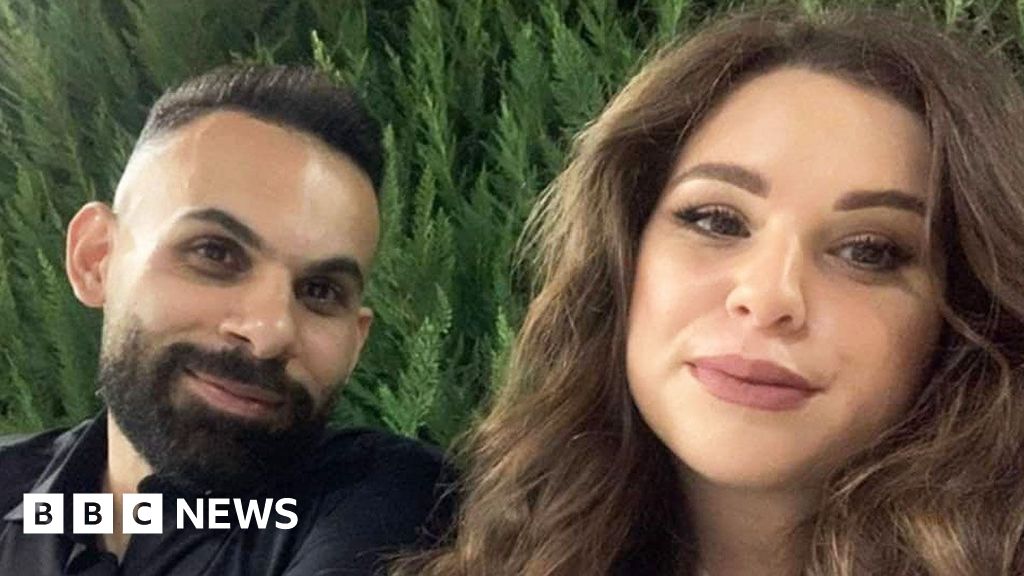ARTICLE AD BOX
By Katy Watson
BBC South America correspondent, in Recife
 Image source, EPA
Image source, EPA
Jair Bolsonaro is seeking re-election after becoming president of Brazil in January 2019
In the first of two profiles of the leading candidates in the race to become Brazil's new president, Katy Watson asks if incumbent Jair Bolsonaro is - as his fans argue - a great leader, or someone who disdains democracy.
Wherever Jair Bolsonaro goes, he likes to stir controversy - but few were expecting him to do so on the eve of Queen Elizabeth II's funeral. As world leaders flew to the UK to mark her passing, President Bolsonaro saw an opportunity to do some campaigning.
While British mourners accused him and his fans of lacking respect in a period of mourning, he was undeterred.
"We're on the right path," he told his supporters from the balcony of the Brazilian residence, saying Brazil did not want to discuss the legalisation of abortion or drugs, with cheers from the crowd in response. And he repeated his often-cited slogan: "God, homeland, family and freedom".
Another familiar mantra at his campaign events is the chant: "Mito, mito, mito."
He is, to his fans, a "myth" - a legendary leader - and they are convinced their man will be re-elected in October.
Despite polls showing his main rival, Luiz Inácio Lula da Silva, in the lead, nothing will deter Mr Bolsonaro's greatest supporters from believing the president, who has himself denounced the polls as a lie, is the only man to lead the country.
Pastor Laura Almeida, at the Mustard Seed Ministry in the north-eastern city of Recife, is one of his most committed fans. Standing in front of her Sunday congregation, she sings his praises.
"We'll vote for Bolsonaro because he is God," she tells her members. "He defends the same principles as us in accordance with the word of God."
Pastor Laura Almeida says she believes that President Bolsonaro is the saviour who will ease the people's suffering
After the service, she explains her thinking to me.
"Whenever people are suffering, when they believe in an all-powerful creator, I think God raises up a saviour," she says.
I ask her if that saviour is President Bolsonaro. "Yes," she replies. "Today in Brazil, I think that's him."
Mr Bolsonaro sings from the same song sheet as many evangelicals. He preaches the importance of family, he is vehemently against abortion and he is known for his homophobic comments.
And it was congregations like Laura's that got him elected in 2018.
"Evangelicals are growing in Brazil," says Prof Vinicius do Valle, Director of the Evangelical Observatory information service in Brazil. "They are now about 30% of the population - only two decades ago, it was about 15% so they are increasing very quickly and it's changing the way we do politics here."
But it is not the same way that the church has traditionally been involved.
"The Catholic Church played a democratic role in the past decades," says the professor, referring to the Church speaking out during the military dictatorship. "But that hasn't happened when it comes to evangelical churches. They are playing a role in Bolsonaro's election and against democratic institutions in Brazil - we see ministers calling people to go to protests against democratic institutions."
Mr Bolsonaro does not separate politics from prayer. His campaign language is littered with religious references. Even lifting himself up to a godly status.
He hit this year's campaign trail in Juiz de Fora, the city where he was stabbed in 2018 - the place where, in his own words, he was "born again".
Gilson Machado describes the president as an "old uncle"
But in the north-east of Brazil, he has a tough job on his hands to convince voters he is the man for them. This is not Mr Bolsonaro's natural stomping ground. In fact, it was the only region where he lost in 2018.
The poorest region in the country, it is where Lula was born and with which he has been associated for all of his political career. For that reason, it has become the ultimate challenge for President Bolsonaro to gain ground here.
Gilson Machado is an affable local politician. A former tourism minister under Mr Bolsonaro, he is perhaps most well-known - or infamous - for his love of playing the accordion. Now, he is running for senate in Pernambuco, but he is also head of Mr Bolsonaro's national campaign in the north-east, and is a great friend of the president.
"He's an old uncle and he likes football, he doesn't drink, he loves his family, he's a Christian and he's a hard, hard worker," he says. "He's the man for the world - the biggest right-wing president of the world right now."
That feeling is shared by nuclear medicine doctor Mitchell Lewis. Although it is not shared by his medical school friends Geraldo Aguiar and Kalina Sá, who are sitting with him at his dining table, enjoying a glass of wine.
From left to right: Geraldo Aguiar, Kalina Sá and Mitchell Lewis - friends with opposing views
In such a polarised political contest, it is surprising the three remain friends. So many relationships have fallen foul of politics in Brazil these past few years.
"What makes you a Bolsonarista [a Bolsonaro supporter] is when he speaks directly to your heart, to your soul," he says. "Bolsonaro freed this voice from all these people you see in the streets screaming 'Mito!'."
Geraldo says he is going to vote for Lula. Mitchell shakes his head.
"Bolsonaro lost a great opportunity to be seen as responsible and confront this pandemic in an intelligent way," Geraldo says, criticising how he behaved during the pandemic. "I don't think he has the emotional intelligence for this."
Kalina though, is on the fence after having voted for Bolsonaro in 2018.
"I am totally against [Lula's] Workers' Party, but I don't think Bolsonaro was a good leader," she says. "He has not listened, and with that, he lost my vote. Those who support Bolsonaro do so no matter what, independently of what he does."
Ultimate commitment or blind adoration? Mitchell has the last word.
"I'm not a religious person, I am an atheist, but when Bolsonaro says that he has a mission from God, I start questioning my lack of belief."

 2 years ago
43
2 years ago
43








 English (US) ·
English (US) ·